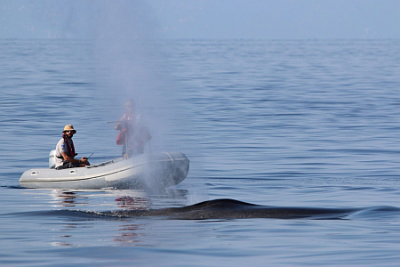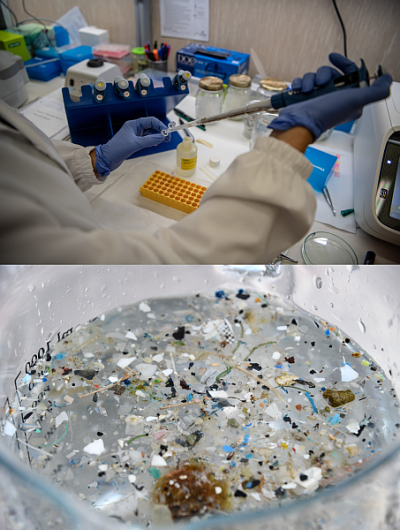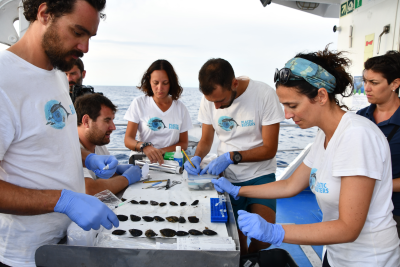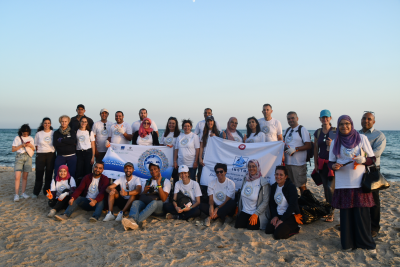
The research group “Plastic Busters – Biomarkers Laboratory” has been working since 1990 to define the multiple impacts of environmental contaminants (both legacy and emerging), marine litter, and other anthropogenic impacts on marine biodiversity (primarily in the Mediterranean Sea), with particular attention to the effects on charismatic species such as marine mammals, seabirds, and sea turtles.

The research group's activity has more recently been structured into a series of specific themes, which have received numerous national and international funding (https://plasticbusters.unisi.it/projects/).
- Monitoring of multiple impacts (emerging contaminants, legacy contaminants, marine litter,
microplastics) on the biodiversity of coastal and lagoon environments and in Mediterranean marine protected areas.
b) Effects of emerging contaminants on Mediterranean biodiversity.
c) Assessment of the presence and effects of marine litter and microplastics in marine and coastal ecosystems and in bioindicator species.
d) Selection of bioindicator organisms and development of new diagnostic methodologies to define the effects of environmental contaminants and marine litter.
e) Development of harmonized methodologies to determine the presence of marine litter and microplastics in marine ecosystems (in various environmental compartments) of the entire Mediterranean basin.
f) Development of Omics techniques (Transcriptomics, Methylomics, Metabolomics, Exposomics) to define the impacts of multiple stressors on charismatic species such as cetaceans and sea turtles using non-lethal methodologies (e.g., skin biopsies).
g) Development of new diagnostic methodologies (e.g., Environmental DNA) to define the presence and effects on Mediterranean biodiversity of “multiple stressors” in critical ecosystems (Posidonia seagrass meadows, wetlands, habitats of endangered species).
h) Assessment of the presence of plastic additives in various environmental matrices and bioindicator organisms.

The Plastic Busters group (composed of 10 people, including professors, researchers, post-docs, and PhD students) has been coordinating an important international initiative since 2013 (Plastic Busters Initiative, https://plasticbusters.unisi.it/), born under the aegis of the UN SDSN-Mediterranean network and which received the “label” from the Union for the Mediterranean (UfM) in 2016, with the aim of monitoring and mitigating the impact of marine litter throughout the Mediterranean basin.

The research group has numerous national and international collaborations, which allow for continuous interaction with qualified researchers and prestigious institutions. This set the ground for continuous exchange with numerous foreign researchers, from PhD students to internationally renowned visiting professors.
